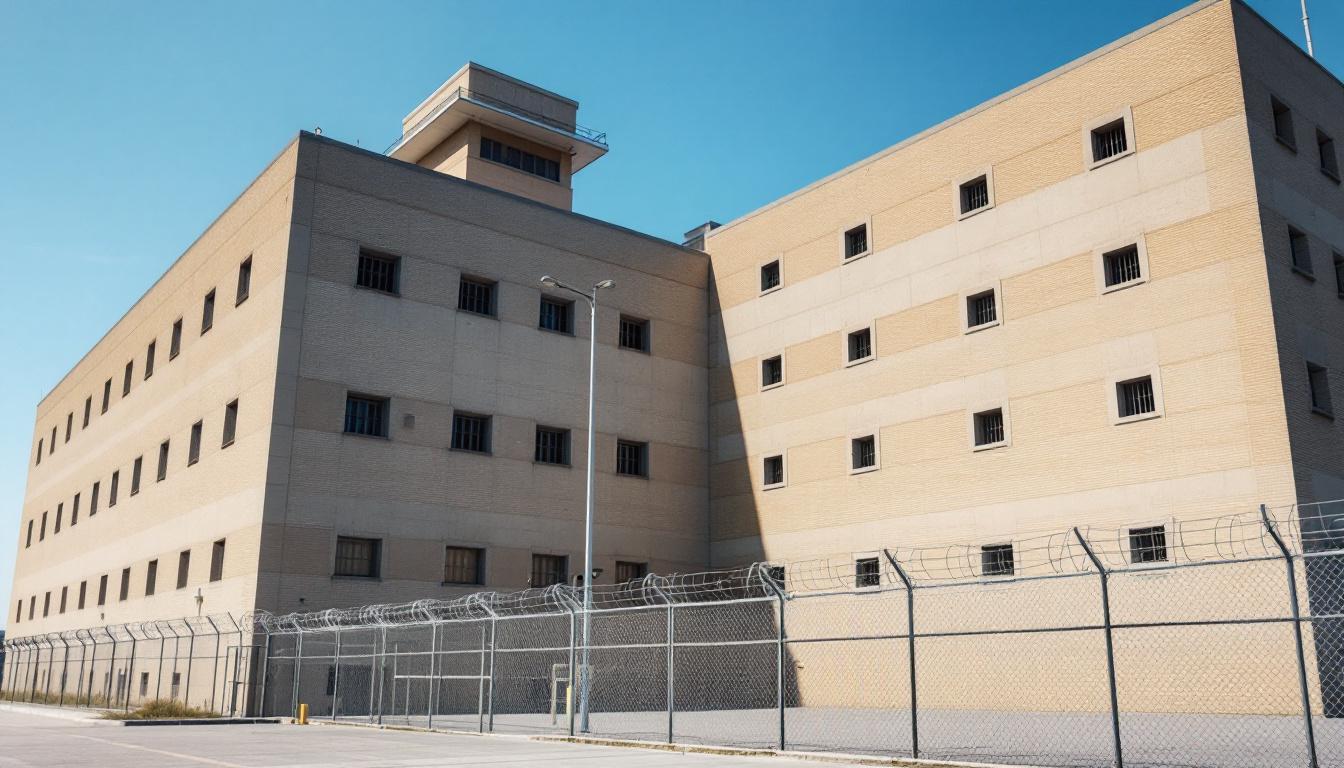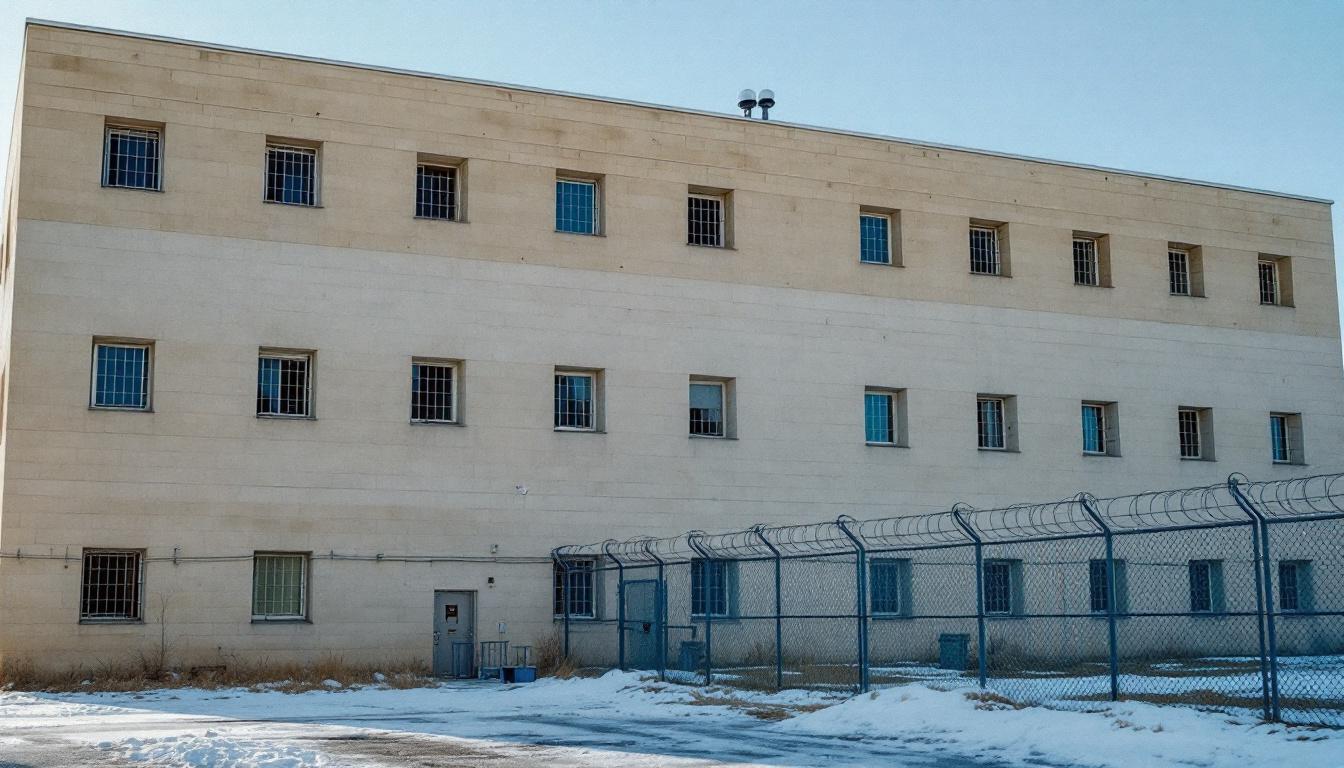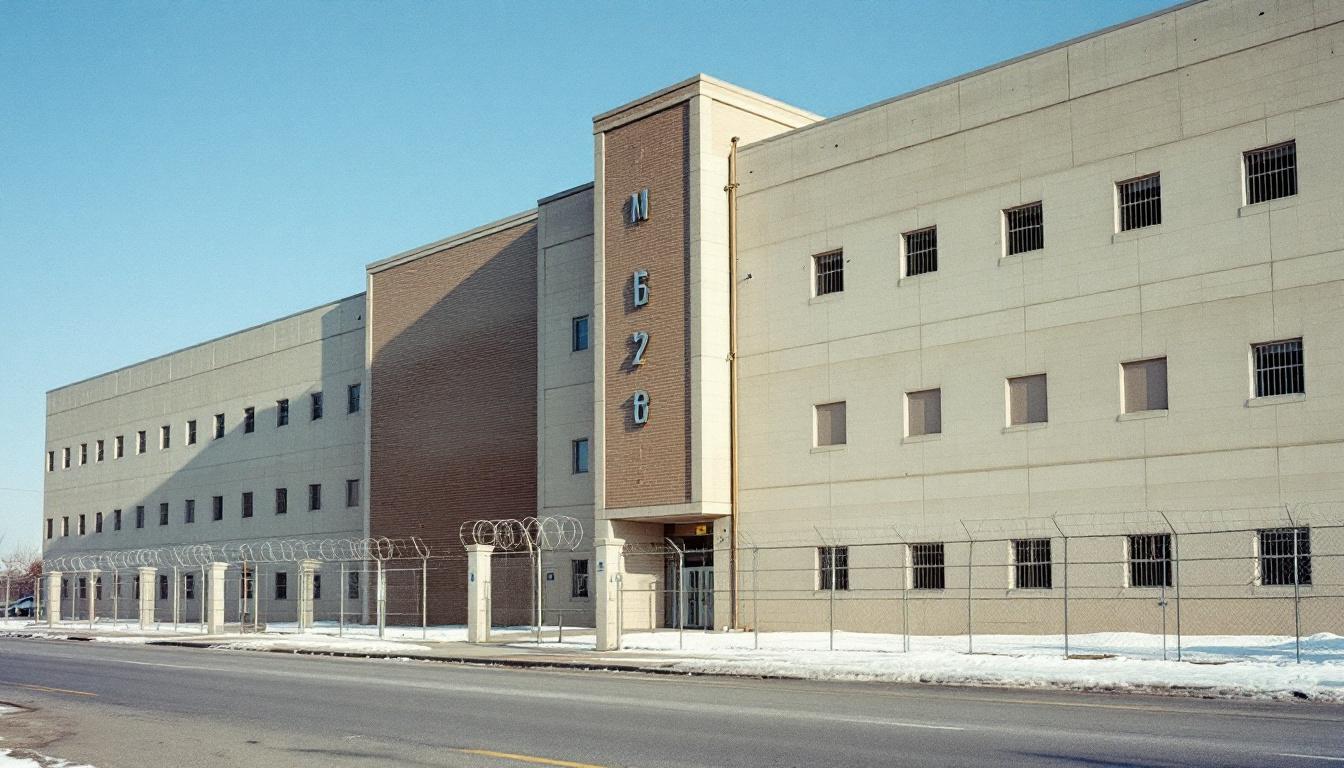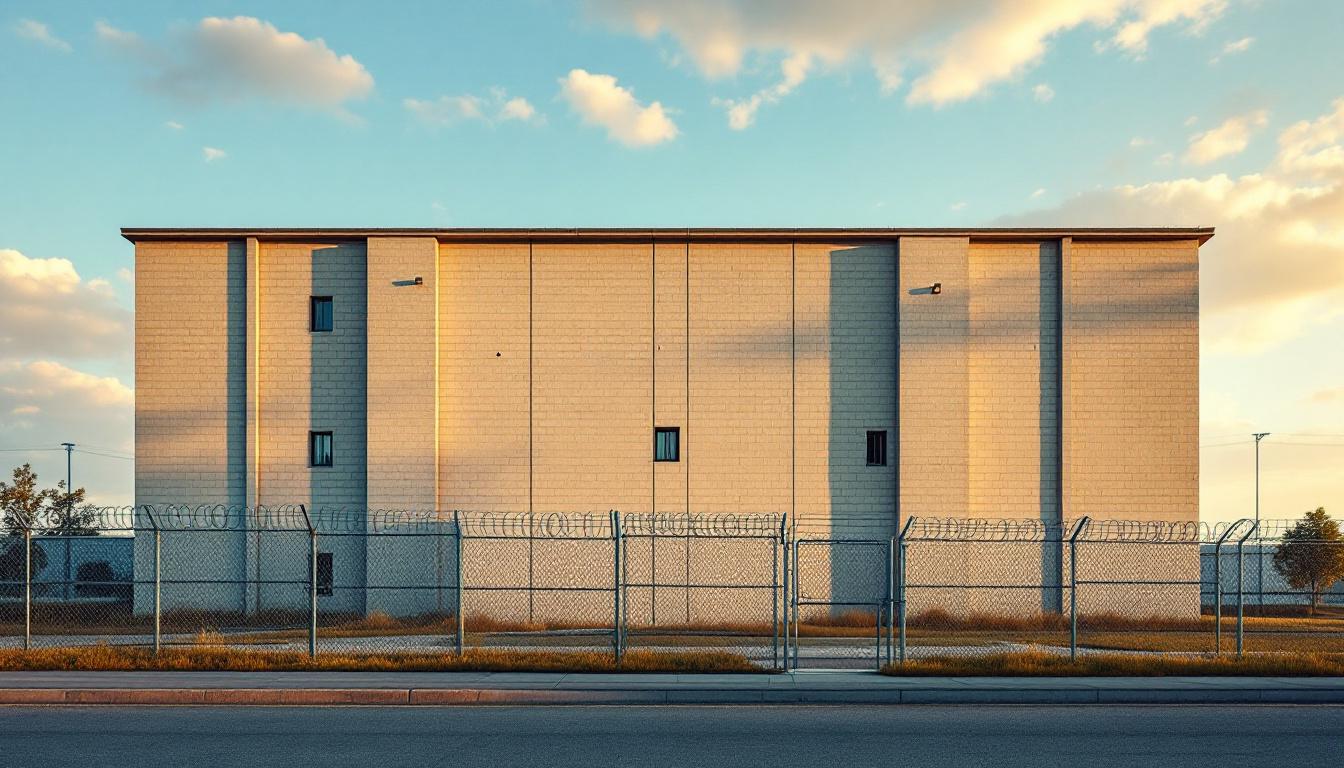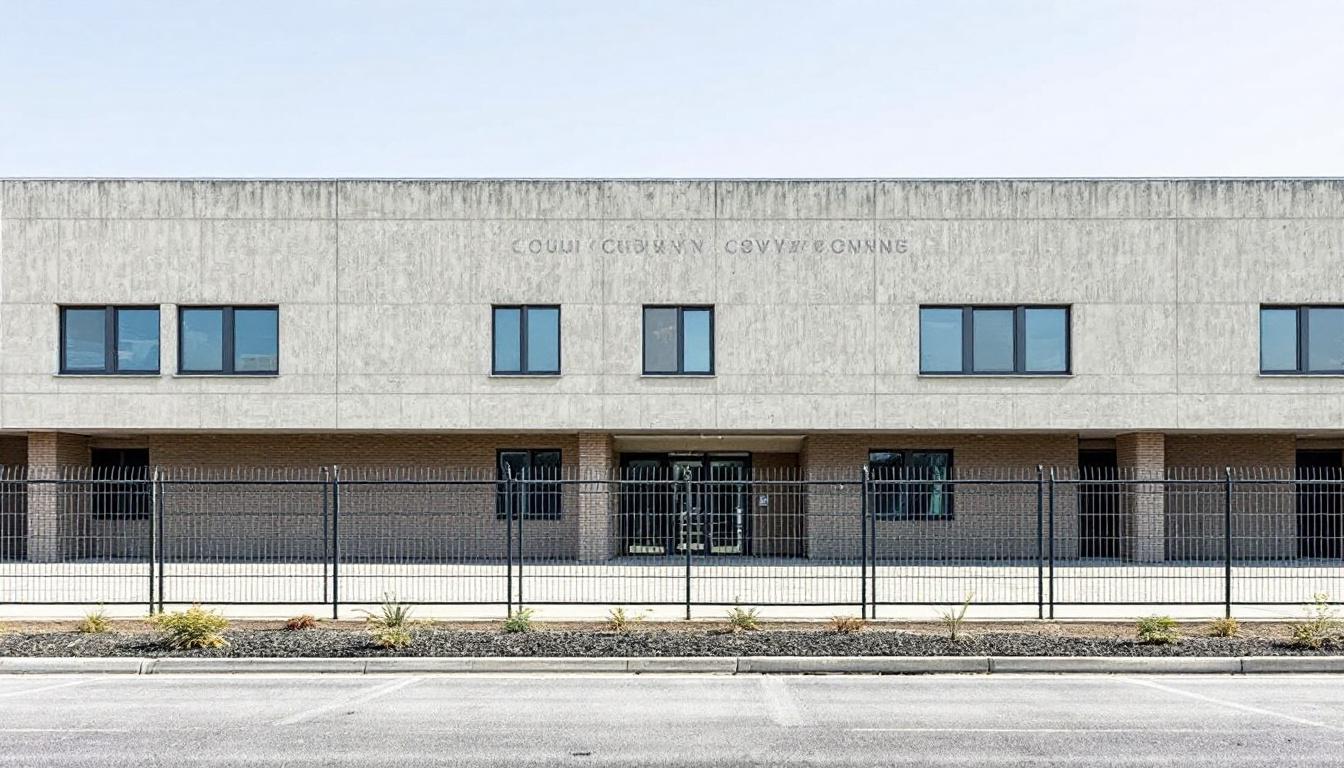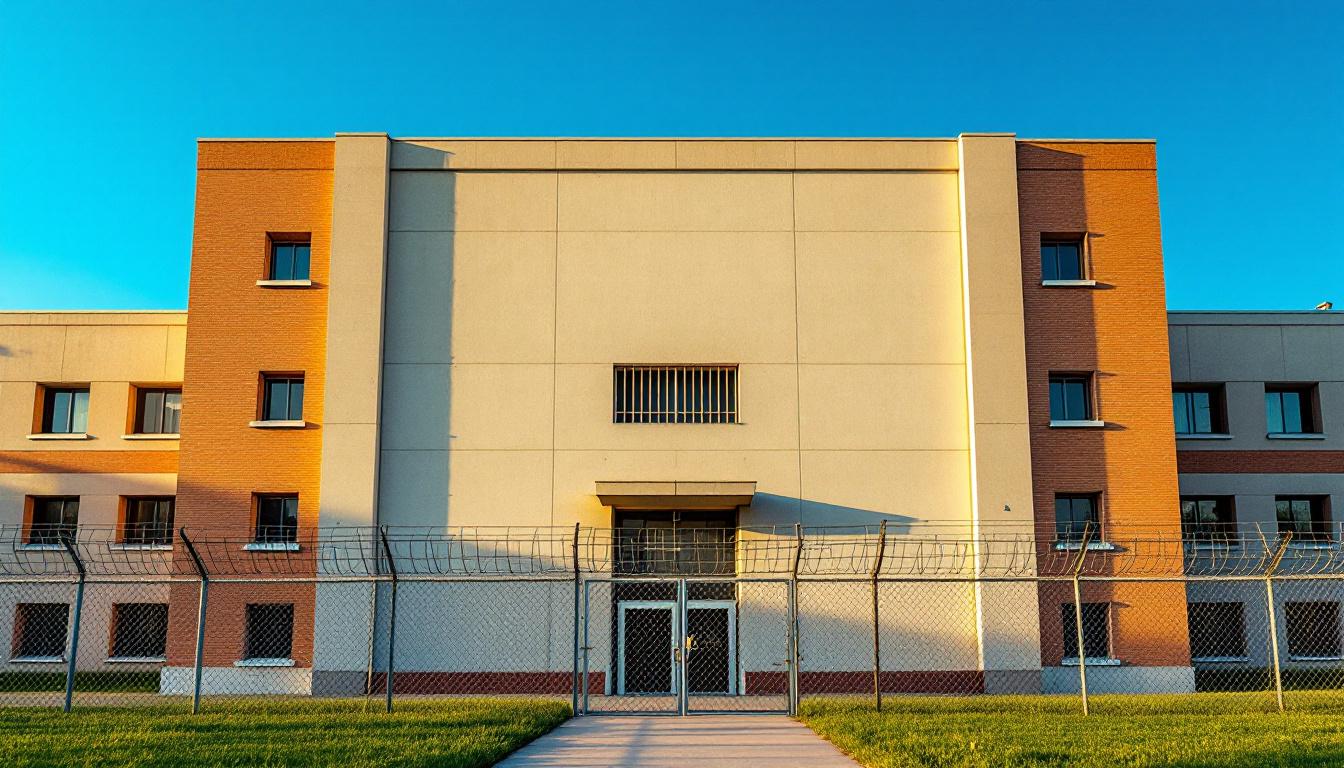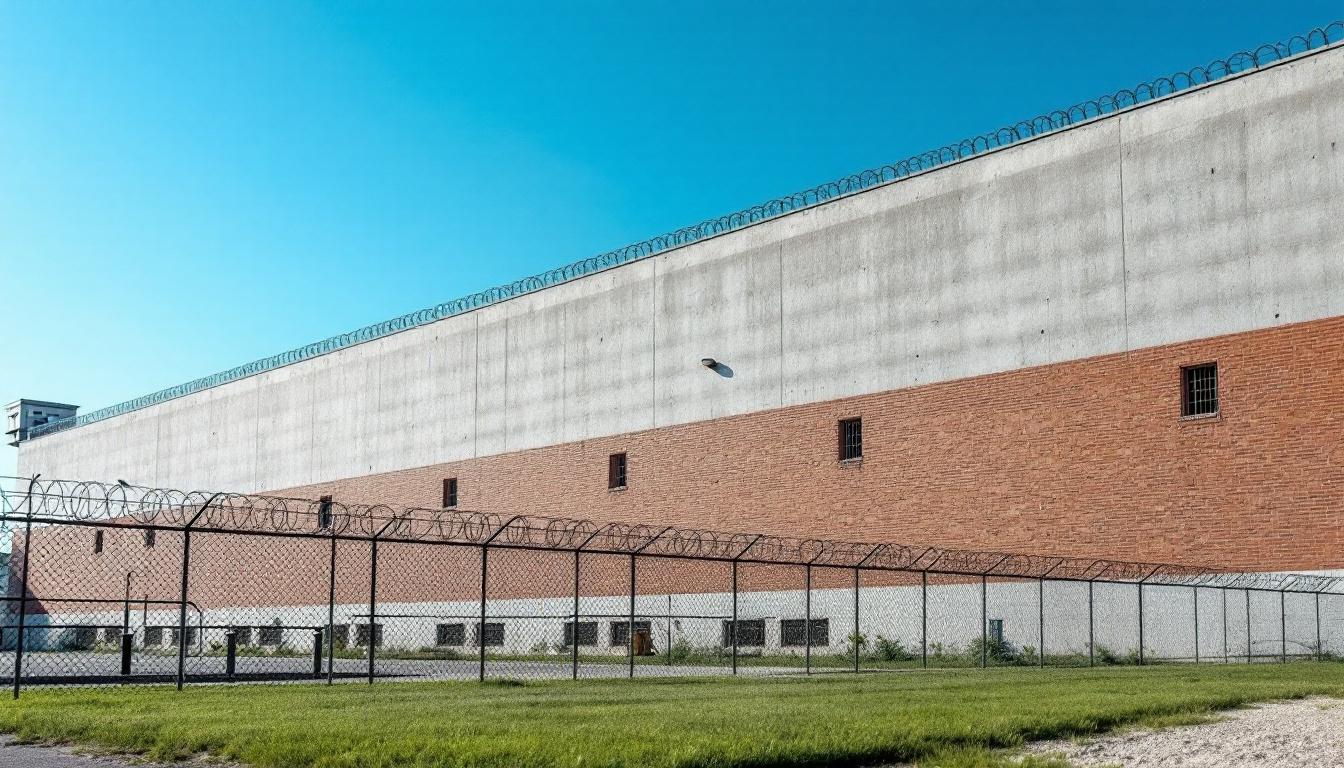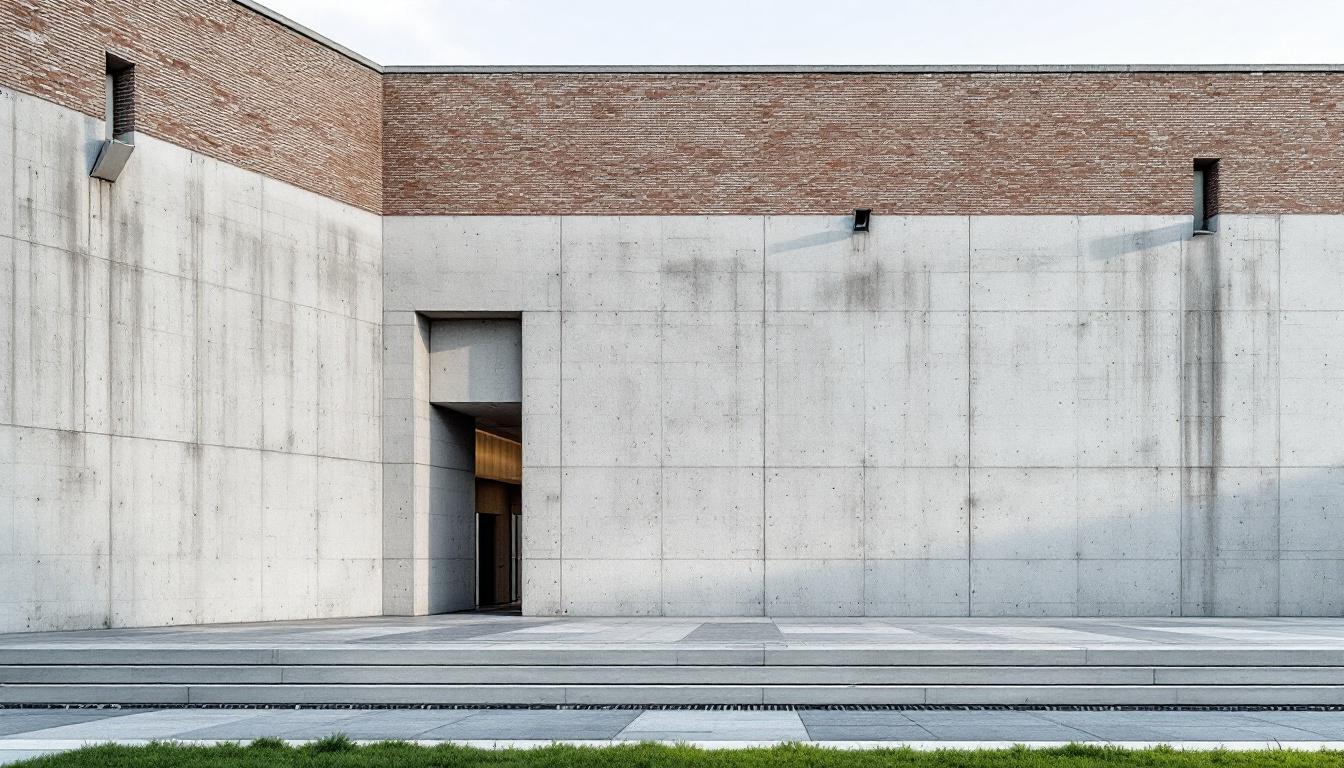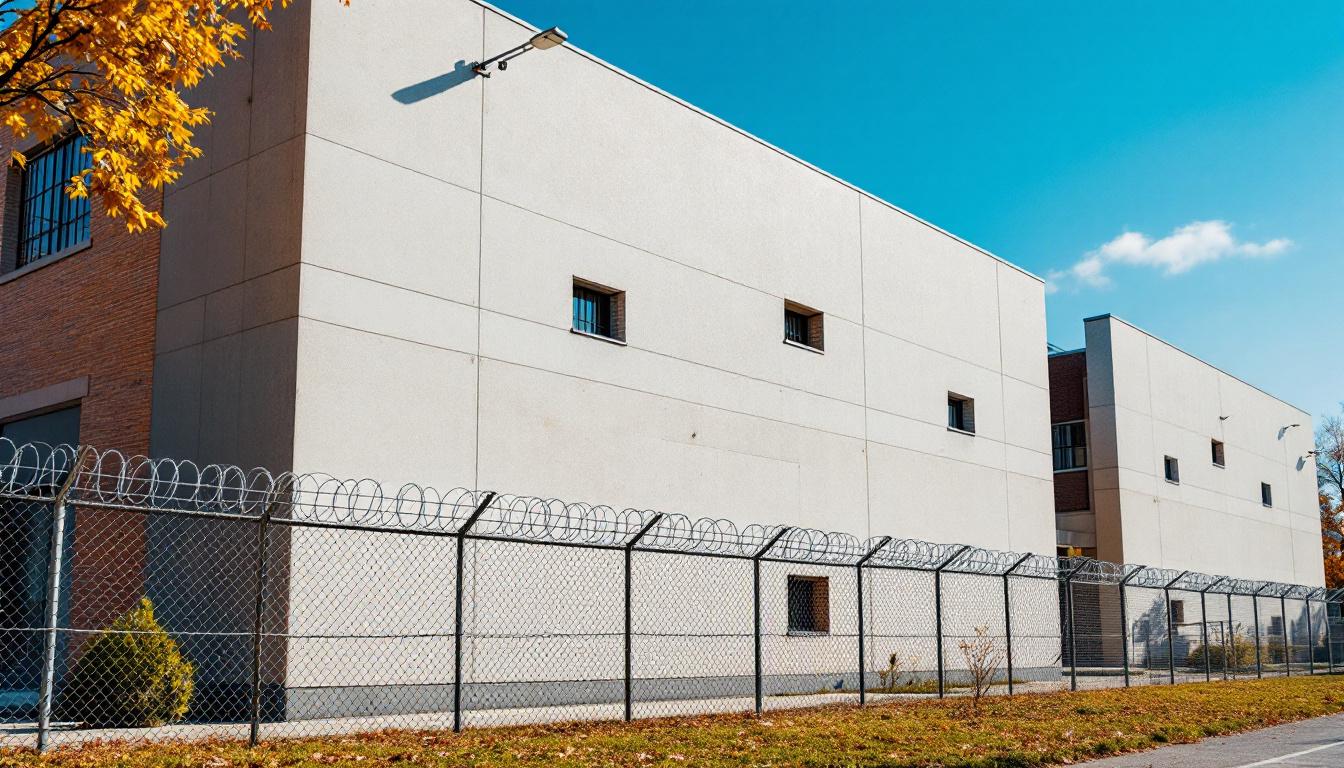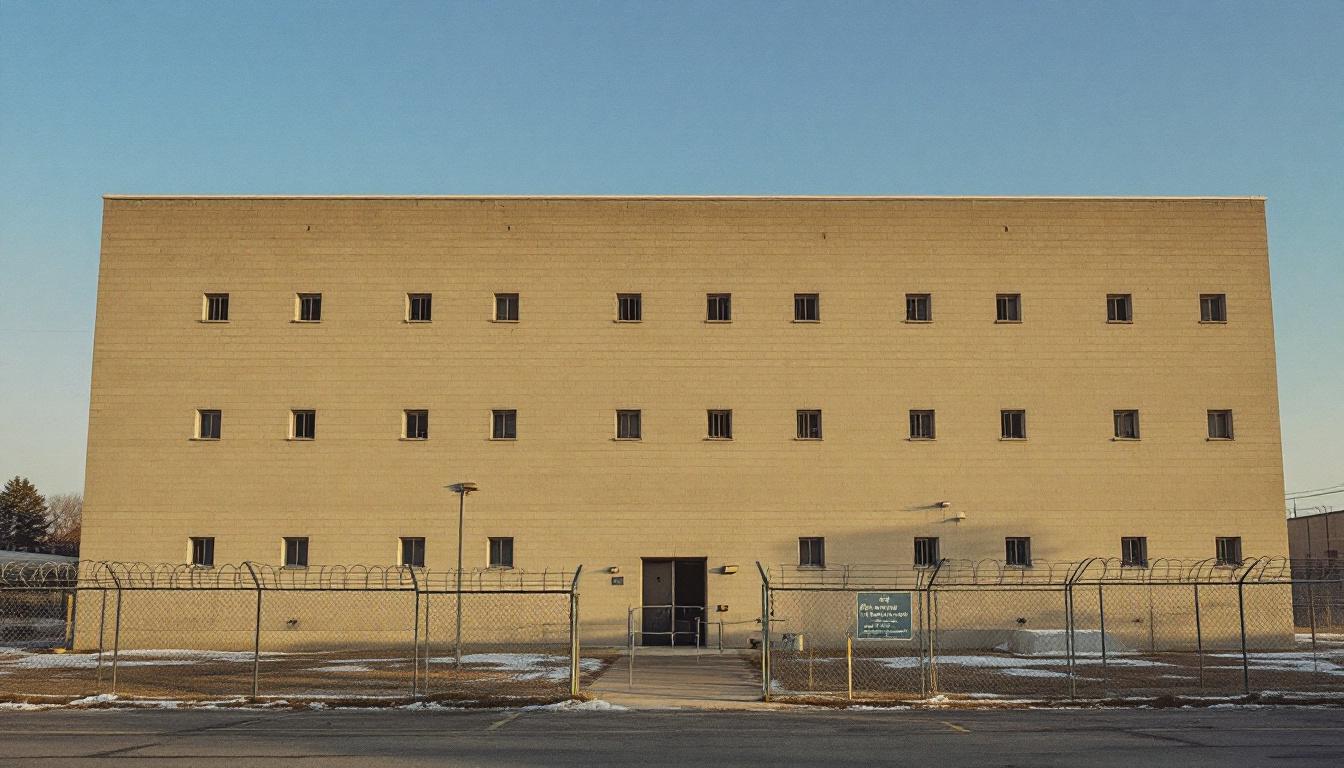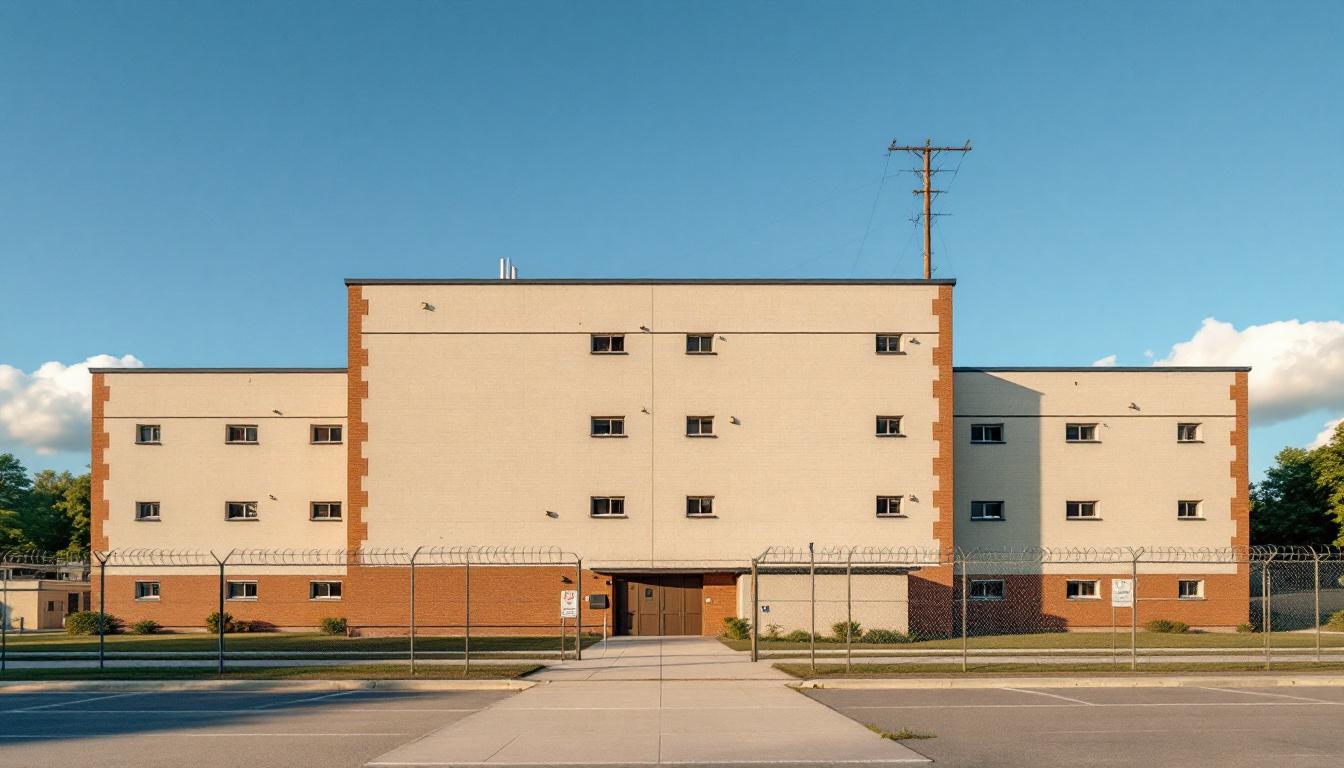
Quick Navigation
How to contact an inmate at Allegheny County Jail
This comprehensive guide will walk you through how to connect with an inmate at Allegheny County Jail. Follow the steps below to find an inmate and send letters and photos:
- Search for the inmate using our search tool below
- Create your account or log in to Penmate
- Write your message (up to 6,000 characters)
- Send instantly - inmates receive printed copies daily
Find an Inmate
Search for an inmate to start communicating today
Tip: You can search by first name, last name, or inmate ID number
To contact a person at Allegheny County Jail start by searching for the person on the official facility website. Perform a search by following these steps:
- Step 1: Enter their first name and last name into the search form and click "Search"
- Step 2: Locate their inmate record
- Step 3: Write down their Inmate ID and any housing information provided
Important! Be sure to enter the person's full name. Nicknames should not be used.
How to Send Messages to Inmates

You can use your phone or computer to send emails, letters, and photos to an inmate. Messages are sent electronically to inmate tablets or kiosks at the facility. If you would like to send a message, start by searching for an inmate at Allegheny County Jail.
Sending Photos and Postcards

A great way to send love and support to a loved one at Allegheny County Jail is to send photos and postcards. It only takes a few minutes to send photos from your phone and it makes a huge difference. You can also mail postcards with words of support and inspiration, or design your own postcard for special moments like birthdays and holidays.
Important! Be sure not to send any explicit photos or they may not be approved by the facility. You can also use a photo printing app like Penmate to make sure your photos are printed at the correct size (4x6 or 3x5) and are mailed according to the rules and regulations of Allegheny County Jail.
Frequently asked questions about Allegheny County Jail
-
How long does it take to deliver a message?
If you're sending an email message your letter is usually delivered within 24-48 hours. For messages sent via mail you should expect delivery within 3-7 days. All messages will need be approved by Allegheny County Jail.
-
How much does it cost to send a message to Allegheny County Jail?
You can send a message free using your phone or mail a message via USPS for the price of a $0.60 stamp and envelope. You can also purchase credits or e-stamps from services starting at $1.99.
-
What services can I use to contact an inmate at Allegheny County Jail?
Penmate
You can use Penmate to send letters and photos to an inmate from your phone. It's an easy way to stay in touch during your loved one's incarceration. Use the inmate locator to find an inmate's location and contact information, then you can send messages within a few minutes.
Securus messaging
Securus may be another option for communicating with an inmate at Allegheny County Jail. You can create a friends and family account and purchase credits to send messages. All messages will be reviewed and must be approved by the facility.
JPay
Some county jails and state prisons may support sending messages with JPay. You must register an account with the system, find your loved one, and purchase stamps to send messages. For some locations you can also attach photos.
Smart Jail Mail
You may also check if Smart Jail Mail is available at Allegheny County Jail. Smart Jail Mail is operated by Smart Communications and has contracted with some state and county jails. After purchasing credits, your messages and photos are sent to the facility, printed out, and then handed out to your loved one.
-
What is the mailing address of Allegheny County Jail?
Mailing address:
Allegheny County Jail
950 Second Avenue
Pittsburgh, PA 15219
Phone: (412) 350-2000Business hours:
- Monday: 7:00 AM – 8:00 PM
- Tuesday: 7:00 AM – 8:00 PM
- Wednesday: 7:00 AM – 8:00 PM
- Thursday: 7:00 AM – 8:00 PM
- Friday: 7:00 AM – 8:00 PM
- Saturday: 7:00 AM – 8:00 PM
- Sunday: 7:00 AM – 8:00 PM
-
What are the visiting hours at Allegheny County Jail?
Visiting hours at Allegheny County Jail vary by housing unit and security level. Generally, visits are scheduled on weekends and holidays, with some facilities offering weekday visits. Contact the facility directly at (412) 350-2000 or check their website for the current visiting schedule. Visits typically last 30-60 minutes and must be scheduled in advance.
-
What items are prohibited when sending mail to Allegheny County Jail?
Prohibited items typically include: cash, personal checks, stamps, stickers, glitter, glue, tape, staples, paperclips, polaroid photos, musical or blank greeting cards, hardcover books, magazines with staples, and any items containing metal or electronics. Only send letters on plain white paper with blue or black ink. Photos must be printed on regular photo paper (no Polaroids). Always check with Allegheny County Jail for their specific mail policies.
-
How do I send money to an inmate at Allegheny County Jail?
You can send money to an inmate at Allegheny County Jail through several methods: 1) Online using JPay, Access Corrections, or the facility's approved vendor, 2) Money orders mailed directly to the facility with the inmate's name and ID number, 3) Kiosks located in the facility lobby, or 4) Over the phone using a credit or debit card. Fees vary by method, typically ranging from $2.95 to $11.95 per transaction.
-
Can I schedule a video visit with an inmate at Allegheny County Jail?
Many facilities now offer video visitation as an alternative to in-person visits. At Allegheny County Jail, video visits may be available through services like Penmate, Securus Video Connect, GTL, or ICSolutions. Video visits typically cost $10-20 for 20-30 minutes and must be scheduled in advance. You'll need a computer or smartphone with a camera and reliable internet connection. Contact the facility for their specific video visitation policies and approved vendors.
-
What identification do I need to visit an inmate at Allegheny County Jail?
All visitors must present valid government-issued photo identification such as a driver's license, state ID, passport, or military ID. Minors must be accompanied by a parent or legal guardian who can provide the minor's birth certificate. Some facilities require visitors to be on the inmate's approved visitation list, which may require a background check. Contact Allegheny County Jail for specific ID requirements and visitor approval procedures.
-
How can I find out an inmate's release date?
To find an inmate's release date at Allegheny County Jail, you can: 1) Use the online inmate search tool if available, 2) Call the facility's records department, 3) Contact the inmate's case manager or counselor, or 4) Have the inmate provide this information during a call or visit. For privacy reasons, some facilities only release this information to immediate family members.
Facility Overview
Contact Information
Allegheny County Jail950 Second Avenue
Pittsburgh, PA 15219
Phone: (412) 350-2000
Official Website
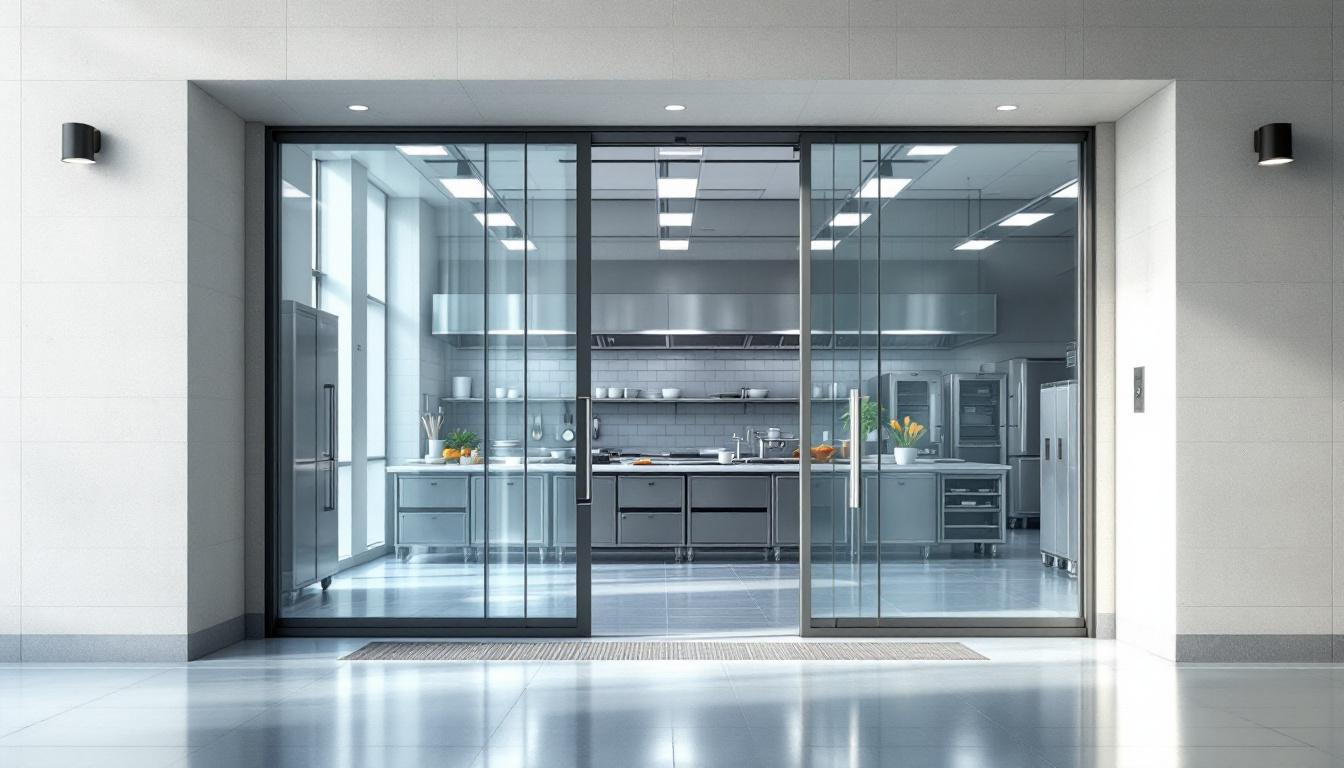
About Allegheny County Jail
Within Pittsburgh's urban landscape, community safety and offender rehabilitation intersect through collaborative efforts that extend far beyond traditional detention approaches. The Allegheny County Jail, PA operates as a cornerstone facility in Ohio's correctional network, where comprehensive inmate services typically emphasize both accountability and preparation for successful community reintegration. This OH correctional facility generally maintains partnerships with local organizations to address the complex needs of individuals within the justice system, recognizing that effective offender management requires coordinated community support.
The facility's approach to rehabilitation often includes educational programming, substance abuse counseling, and vocational training opportunities designed to address underlying factors contributing to criminal behavior. Mental health services and medical care typically form essential components of daily operations, while family visitation programs may help maintain crucial community connections during incarceration periods. As part of Ohio's broader correctional framework, this county jail generally coordinates with probation services, treatment providers, and reentry organizations to create pathways for sustainable community reintegration.
Through its strategic location in Pittsburgh, the facility often serves as a vital link between law enforcement, judicial processes, and community-based support systems. Staff members typically work with case management approaches that consider individual circumstances while maintaining security protocols necessary for safe operations. The collaborative model generally extends to post-release planning, where connections with housing assistance, employment resources, and ongoing treatment services may help reduce recidivism and strengthen community safety outcomes throughout the region.
Programs & Services
Personal transformation through structured learning opportunities forms the cornerstone of rehabilitative services typically available within Allegheny County Jail. The facility's approach to inmate development often emphasizes building practical skills and addressing underlying issues that may have contributed to incarceration. Through carefully designed interventions, inmates may access resources that foster both immediate coping strategies and long-term life skills, creating pathways toward successful community reintegration upon release.
Educational initiatives frequently serve as foundational elements of the facility's development-focused services, with inmates often having opportunities to pursue basic literacy improvement, GED preparation, and continuing education coursework. Additionally, vocational training services may provide hands-on experience in various trades, including culinary arts programs that teach food preparation and kitchen management skills. These job training opportunities typically aim to equip participants with marketable skills that enhance employment prospects, while simultaneously building confidence and work ethic through structured learning environments.
Support services often encompass a comprehensive range of therapeutic interventions designed to address substance abuse, mental health concerns, and spiritual needs. Recovery services may include group counseling sessions, individual therapy, and educational workshops focused on addiction prevention and relapse management. Additionally, chaplaincy programs typically provide spiritual guidance and counseling services for inmates seeking faith-based support during their incarceration. Community service opportunities may also be available, allowing qualified inmates to contribute meaningfully to local initiatives while developing civic responsibility and work experience that supports their personal growth journey.
Daily Life & Visitation
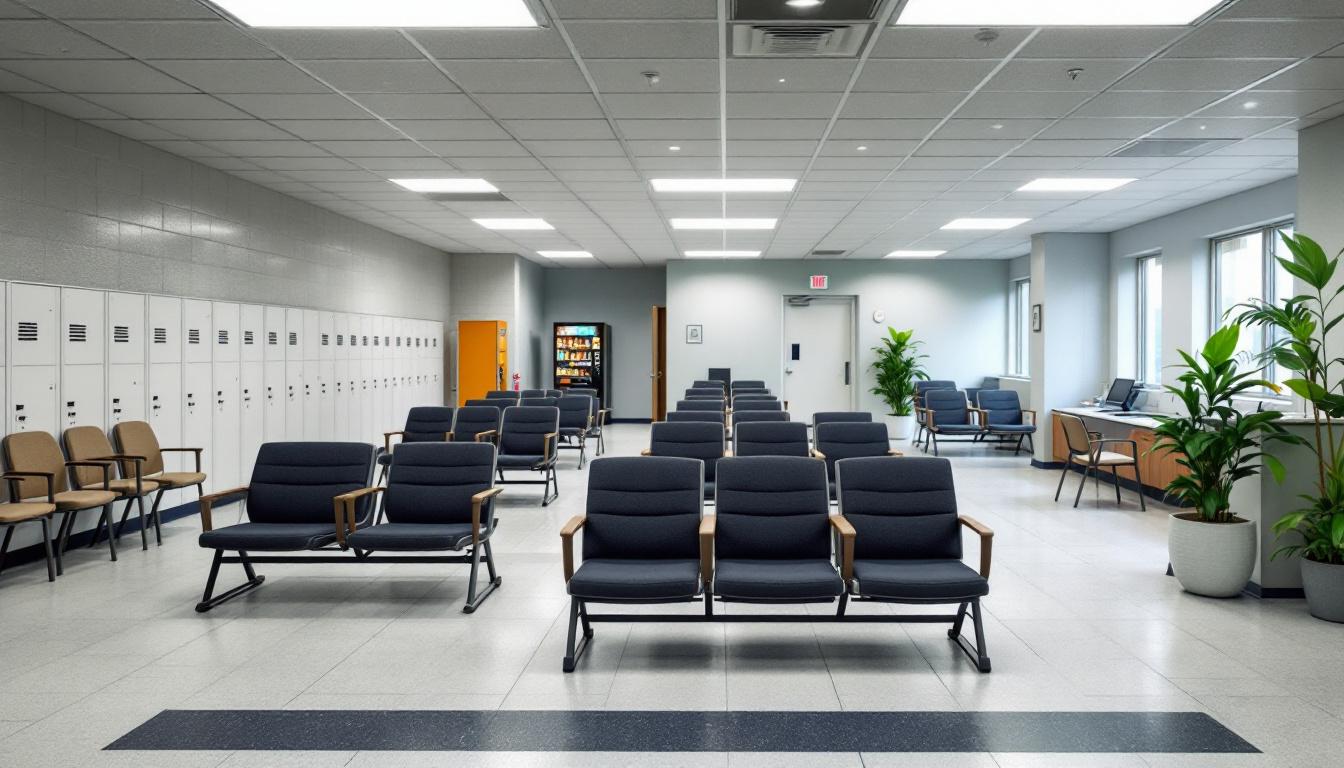
The concrete walls and steel fixtures of the housing units create a stark, institutional environment where inmates must navigate carefully structured routines and limited personal space. At present, the facility actively maintains a regimented schedule that typically begins with early morning counts and meal service, followed by various programming opportunities and work assignments throughout the day. Inmates generally adapt to this environment by establishing personal routines within the broader institutional framework, often finding ways to maintain connections with family and focus on available educational or vocational programs.
Living accommodations typically consist of shared cells or dormitory-style housing units, where inmates must learn to coexist in close quarters with limited privacy and personal belongings. The facility generally provides basic necessities including bedding, hygiene items, and institutional clothing, while inmates may purchase additional items through the commissary system when funds are available. Additionally, the dining arrangements usually involve scheduled meal times in common areas, where inmates receive nutritionally planned meals that meet basic dietary requirements, though the institutional setting often requires adaptation to unfamiliar foods and eating schedules.
While the structured environment may initially feel restrictive, many inmates find that recreational activities, library access, and educational programming provide meaningful ways to spend time and work toward personal goals. The facility typically offers various work assignments that may include kitchen duties, maintenance tasks, or laundry services, which can provide inmates with structure and sometimes modest compensation. Furthermore, visitation policies and communication options such as phone calls and mail generally allow inmates to maintain important family connections, though these interactions usually occur within specific timeframes and security protocols that help inmates stay connected to their support systems outside the facility.
Ready to Connect?
Start communicating with your loved one today
Search for an Inmate
